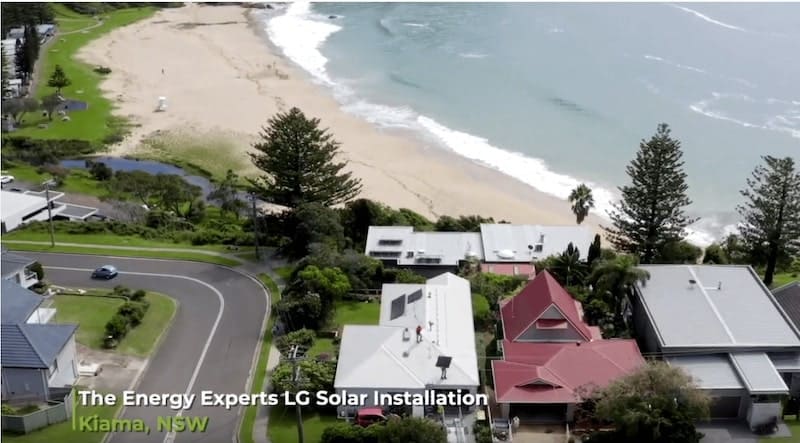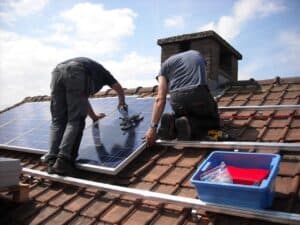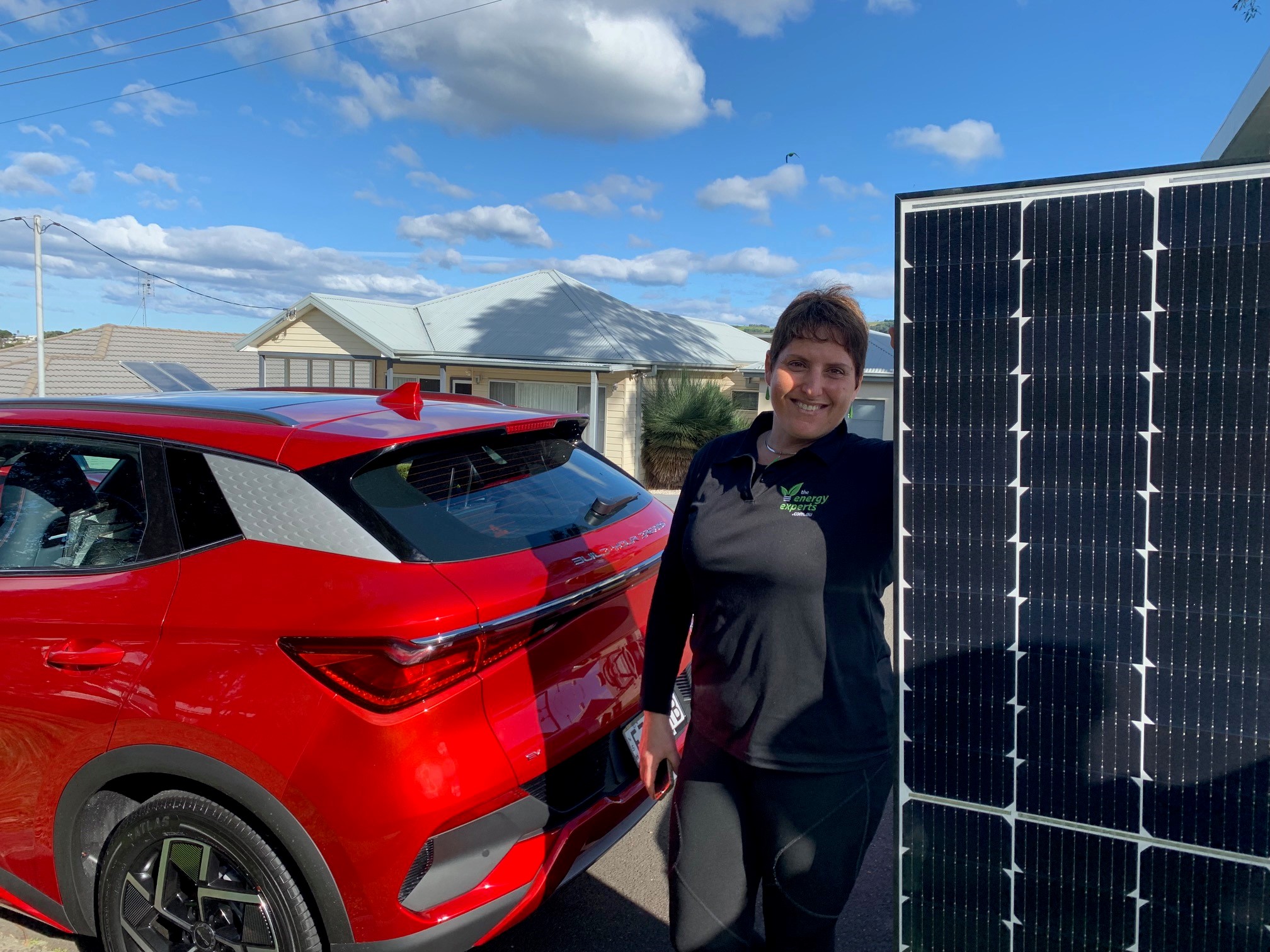The first of these is the capacity (size) of your solar system (ie. how many panels you have).
The battery in an electric vehicle draws a large amount of power. A small solar system is unlikely to be adequate to provide a full charge. If there’s insufficient solar energy, charging will revert to the grid. To provide a full (free) charge from your panels for the average EV, we recommend a min. 10kW solar power system if your roof space can accommodate the number of panels (typically 23-24 panels).
Quality of the solar panels
Australia has a thriving solar panel market that differs wildly in quality and price. Opting for lower-priced panels can be tempting, especially in the current cost-of-living crisis, but cheaper panels produce less power than better quality panels, especially on low-light days and on really hot days. Given an electric car uses a lot of energy to charge, it makes sense to choose higher performance panels that will produce more power and cover more of the EV charging load.
Types of EV chargers
If you want to rely only on solar to power your EV, then you’ll need a smart EV charger. With smart chargers, the rate that the car charges mirrors your solar production. This allows you to get better use out of your system and lower your electricity bills.
Most standard (dumb) EV chargers are either on or off. If it’s a sunny day, your car will charge directly from solar. But if it turns cloudy and your solar yield diminishes, your car will likely use both grid and solar energy to continue charging.
A smart EV charger will automatically reduce consumption to compensate for the power used by other appliances in the home. You’ll be able to run say, the washing machine at eh same time as charging the car (at a reduced charge) simultaneously. When the washing machine finishes and you have full power available again, the car charger will ramp back up.
Carolyn Lee, co-Director of The Energy Experts, and her partner bought electric vehicles in June this year and have a smart EV charger that’s set on ‘solar-only’ most of the time. “Since buying our electric cars, we’ve only charged them at a public charging station twice. The rest of the time, we charge our cars at home for free. Our solar system, together with a smart EV charger, is able to fully charge our cars without ever having to dip into the grid,” she says.
You can, override the solar-only mode to charge directly from the grid if necessary. For instance, if you need to drive a long distance the next day and require a full charge, you can charge overnight from the grid at the maximum charge speed and wake up to a fully battery.
It’s generally not advised to charge your EV from battery storage, as this will drain the battery very quickly (the average battery stores 10kWh and the average EV requires 60kWh to charge from empty to fully charged). Better to charge directly from your panels where possible or from the grid if you’re not home during the day to charge your EV.
Call The Energy Experts on 1300 516 474 or email us: save@theenergyexperts.com.au.















